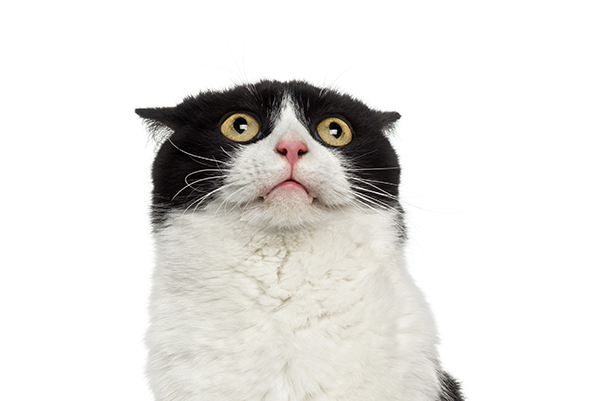Fear of Loud Noises

Is your pet afraid of loud noises like thunderstorms, fireworks, and parties? Depending on your pet’s level of fear, this common problem can create chaos. During noisy times, your pet might cower, shake, hide, whine, pace, chew and destroy things, or even lose bladder control.
Why the Fright?
Veterinarians and pet behavior experts have many theories about why some pets - especially dogs - are afraid of certain sounds. Genetics may be part of it. Herding breeds, like shepherds, collies, and corgis, tend to show anxiety during thunderstorms, perhaps due to a genetic drive to protect a flock outdoors.
It’s also thought that the first three months of life play an important role in determining which sounds your pet is sensitive to. If your dog is exposed to fireworks during its first few months, it may feel more or less unsettled about them for a lifetime.
Your reaction to loud noises is also part of the picture. Animals pick up on their owners’ moods, so if you exclaim or cower after loud noises, they may sense something is amiss.
It’s important to distinguish between fear, anxiety, and a phobia. Fear is a normal response to a threat. A little fear of noises is normal. Anxiety is a persistent apprehension, even without the threat present. A phobia is an extreme and persistent anxiety that affects your pet’s quality of life.
Easing the Anxiety
In general, you can ease your pet’s anxiety about loud noises by providing safety, comfort, and distraction. Here are some things that may help.
- Safe space. When loud things are happening, make sure your pet has a safe place to hunker down. It might be their bed, crate, or even a spot behind the couch. Allow them to seek out this safe place.
- Human comfort. Your pet may need extra petting, cuddling and gentle words. There’s no need to overdo it - for example, don’t feel like you can’t leave their side during a storm - but providing some extra interaction shows there’s nothing to worry about.
- Soothing sounds. Distract your pet from loud sounds by playing soothing music. While the music is on, play with your pet and create an upbeat atmosphere. Over time, your pet’s attitude about storms or fireworks may change because they happen during fun times.
- Face the fear. In cases of extreme anxiety in dogs, some people use an exposure technique. Find or make a recording of whatever your pet fears, and play it over several days. Increase the volume until the anxiety seems to peak, then lower it. As soon as your dog begins to calm down, provide a treat and extra attention. With patience, your dog will prefer the feeling of calmness.
- Try anxiety wraps. If nothing seems to be working, consider trying an anxiety wrap, which is a small anti-static vest. The wrap applies pressure to the sides of the body, a sensation that many anxious dogs find comforting.
- Vet consultation. Talk to your vet about your pet’s behavior. They can offer additional ideas depending on your pet’s history, breed, and individual needs.
What About Medication?
Most vets don’t view medication as a long-term solution for situational anxiety - that is, anxiety brought on by specific circumstances like storms. It may work to use medication for a short period, like after the shakeup of moving into a new house, but it’s a good idea to pair medication with other solutions.
If your pet’s anxiety seems extreme, talk to your vet about seeking out an animal behaviorist. These specialists spend long periods observing your pet’s behavior, so they can recommend specific techniques you can use. The Animal Behavior Society of the United States maintains a list of board-certified veterinary behaviorists across the country.
Does your pet have anxieties or phobias? Reach out to the experts at Academy Animal Hospital or call 317.881.3125 for a consultation.
